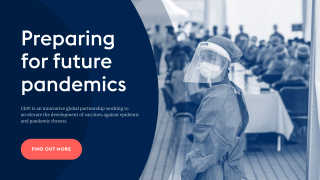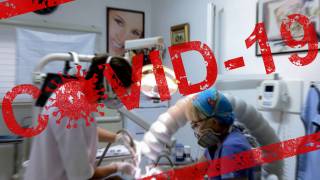$4.3 Million Grant Awarded to Accelerate Convalescent Plasma Research

As the search for COVID-19 therapies continues, convalescent plasma—distilled from the blood of people who have recovered from COVID-19—has emerged as a promising treatment option.
To accelerate this innovative treatment the National Institutes of Health (NIH) awarded Albert Einstein College of Medicine and Montefiore a $4.3 million grant, which was announced on August 17, 2020.
This NIH grant will support a randomized, double-blind, placebo-controlled phase 2 clinical trial that launched in April to evaluate the efficacy of convalescent plasma to treat COVID-19.
“Convalescent plasma has a long history of improving symptoms and decreasing mortality associated with pandemic diseases, dating back to meningitis at the beginning of the 20th century,” said trial principal investigator at Einstein and Montefiore, Liise-anne Pirofski, M.D., and a member of the leadership group of the national COVID-19 Convalescent Plasma Project.
COVID-19 survivors donate plasma.
“Historically, studies of convalescent plasma for pandemic diseases have been small and the results anecdotal—we are hopeful that our randomized controlled trial will provide a definite answer on its efficacy for COVID-19,” said Dr. Pirofski in a press statement.
Convalescent therapy received FDA approval for investigational use in an open-label protocol for hospitalized patients in late March -- but physician-scientists at Einstein and Montefiore have been pursuing the “gold standard” of a randomized clinical trial to determine if it can alleviate COVID-19 symptoms and reduce mortality rates.
Find a treatment location.
Knowing there was no time to waste, Einstein, Montefiore, and NYU Langone swiftly launched the trial prior to securing federal funding. Study coordinators, pathologists, blood bank personnel, statisticians, regulatory specialists, clinicians, and research nurses quickly united to roll out the trial, which uses convalescent plasma and a placebo.
To date, more than 180 people have been enrolled in the study, which is now expanding to other sites.
What makes this NIH grant unique compared to many others is that funding did not go directly to the principal investigators of the convalescent plasma trial, but rather to the Clinical and Translational Science Awards program, which in turn, funds the Block Institute for Clinical and Translational Research at Einstein and Montefiore (ICTR).
The ICTR, established in 2007, formalized the research partnership between Einstein and Montefiore and is designed to break down barriers that inhibit cross-disciplinary research between basic scientists, clinical researchers, and population health investigators.
“This is the beauty of working at an academic center: several of our faculty are a triple threat – they are physicians seeing patients, educators teaching students and colleagues, and researchers doing outstanding scientific investigation,” said Marla Keller, M.D., vice chair for research in the department of medicine at Einstein and Montefiore.
“Our junior faculty have all stepped up and risen to the occasion to fight COVID-19. It is remarkable to watch.” Dr. Keller is also a professor of medicine and of obstetrics & gynecology and women’s health at Einstein and an ID specialist at Montefiore.
Mila Ortigoza, M.D., Ph.D, an instructor in the Departments of Medicine and Microbiology at NYU Langone Health added: “Vaccines may not be available for some time, and plasma therapy may provide an important option in the meantime.”
Einstein-Montefiore and NYU are two of 60 CTSAs throughout the country. The study team hopes to have results from the randomized convalescent trial by early 2021.
The grant is titled “Convalescent Plasma to Limit Coronavirus Associated Complications: A Randomized Blinded Phase 2 Study Comparing the Efficacy and Safety of Anti-SARS-COV-2 Plasma to Placebo in COVID-19 Hospitalized Patients.”
Montefiore Health System in New York comprises 11 hospitals, including the Children’s Hospital at Montefiore, Burke Rehabilitation Hospital, and more than 200 outpatient ambulatory care sites.
Albert Einstein College of Medicine is home to 724 M.D. students, 158 Ph.D. students, 106 students in the combined M.D./Ph.D. program, and 265 postdoctoral research fellows.
CoronavirusToday publishes research-based COVID-19 treatment news.
Our Trust Standards: Medical Advisory Committee

























